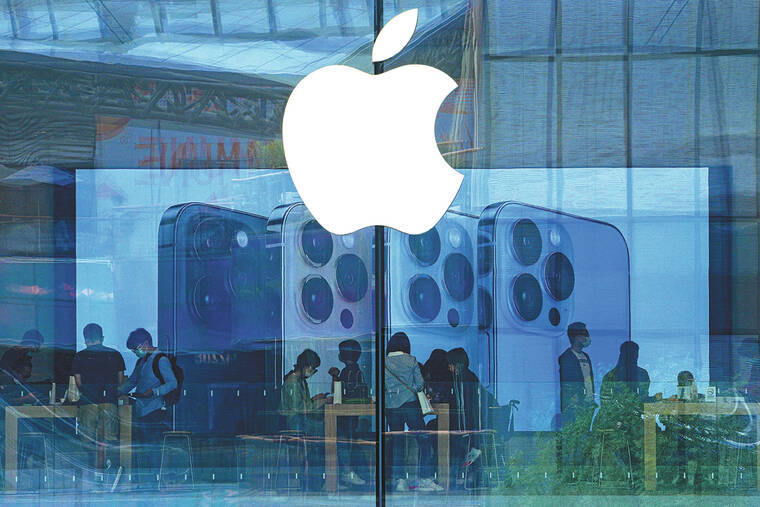Supreme Court rebuffs Apple’s appeal on app payments, threatening billions in revenue
WASHINGTON — The Supreme Court on Tuesday allowed a court order to take effect that could loosen Apple’s grip on its lucrative iPhone app store, potentially siphoning billions of dollars away from one of the world’s most profitable companies.,
The justices rejected Apple’s appeal of lower-court rulings that found some of Apple’s app store rules for apps purchased on more than 1 billion iPhones constitute unfair competition under California law.
The appeal stemmed from an antitrust lawsuit filed in 2020 by Epic Games, maker of the popular Fortnite video game. Epic lost its broader claim that Cupertino, California-based Apple was violating federal antitrust law, and the justices also rejected Epic’s appeal Tuesday.
But in turning away Apple’s effort to maintain exclusive control over in-app payments, the court lifted a hold on an order to allow app developers throughout the U.S. to insert links to other payment options besides its own within iPhone apps. That change would make it easier for developers to avoid paying Apple’s commissions ranging from 15% to 30%.
Those fees have turned into a significant part of Apple’s service’s division, which generated $85 billion in revenue during the company’s last fiscal year ending in September. The specter of consumers being able to defect to other payment channels for in-app transactions is one of several factors that has been weighing on Apple’s stock, which has declined 5% so far this year.
The drop has enabled Apple’s long-time rival, Microsoft, to eclipse it as the world’s most valuable company. Apple’s shares dipped 1% Tuesday leaving the company with a market value of slightly more than $2.8 trillion. Microsoft, whose stock has edged up 4% so far this year, is valued at $2.9 trillion.
Besides the possibility of the Supreme Court refusing to consider the payment issue in the Epic case, investors also have been fretting about new European regulations scheduled to take effect in March that also could force Apple to allow alternate payment methods inside iPhone apps.
Apple has staunchly resisted taking down the barriers, saying doing so would weaken iPhone security.
Epic, based in Cary, North Carolina, had claimed that Apple’s app store — which was launched in 2008, a year after the first iPhone went on sale — had turned into an illegal monopoly that stifles innovation and competition while generating billions of dollars in profit for Apple. Although a federal judge rejected the assertion that Apple had a monopoly on mobile apps, she concluded consumers should have more discretion in how to pay inside apps.


